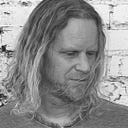Long answer warning.
If I understand Tryon correctly, he proposed that the whole Universe results from a vacuum fluctuation originating from what we could call "quantum nothingness." To be clear, Tryon's idea that all that exists (matter, energy, etc.) preexisted within a quantum vacuum in differing states, then a bubble-like energy fluctuation out of this vacuum birthed the Universe. I love bizarre and weirdly possible ideas, and there may be something to this.
Except "quantum nothingness" is something. It's called "quantum foam," which exists at the tiny quantum level. This means in the quantum world, empty space isn't exactly empty. That vacuum is actually a vibrant, active place, with tiny subatomic particles appearing and disappearing in wanton abandon. So it's not the same as birthing a universe from literally nothing. This circles me back to the "first-cause" origin theories developed by philosophers and theists. Quantum fluctuations only get me back to the original moment the "material" universe began but with better mechanics to explain it.
I'm not trying to disprove science—I'm a fan of it. I walked away from Ken Ham-type evangelical dogma to test what I was told is biblically true about creation and life, the meaning of existence, and the afterlife. God should be big enough to answer for himself without the help of wacky religion. My goal has been to see if it is possible to find God outside the Bible and organized religion.
The only thread holding me to an "originator of all things" [intelligent designer with agency] and Christian narrative is this:
[No materials] x [no time] x [no intelligence] = [everything universally existant]
0 x 0 x 0 = 0
Objective science has yet to demonstrate the creation of something out of "literal nothing," even when applying great amounts of external forces.
To me, there is evidence that material is separate from the immaterial. Beauty isn't physical and can't be scientifically measured and tested, but we can agree that a flower is beautiful. So beauty is something. The same goes for love and dreams.
The integrity and meaning of a dream can't be measured, although we can test the electrical impulses in the physical brain that show it was indeed a dream. But the dreamer feels the intensity and emotions of the storyline as though awake, unaware it's a dream.
But the dream exists. The dreamer confidently sits on an immaterial chair and doesn't fall through. The chair follows the constructs of natural physics within the dream because the dreamer's expectations to make it so. The dreamer creates his reality, and the pseudo-physical world within the dream reacts as the dreamer imagines it will.
Science measures an important but narrow spectrum of existence and reality. But there's more to the story. If the dream is a shadow of our awake reality, what makes us so confident we are not in the shadow of a higher plane now?
These are legitimate questions.
I freely admit I lean towards us existing within a shared simulation or virtual reality biosphere unique to each individual. For me, the idea that the originator of our universe is immaterial, separate, and outside our universe solves many of the existential problems. The originator was not birthed from within the material universe he created. That is an unresolvable paradox and flawed logic. He exists outside our universe, and our universe exists within his realm as a bubble or software program. Subsequently, he isn't restricted to our universal laws but can still interact with us if and how he chooses. He's the software engineer tweaking our code.
All that said, quantum fluctuation is fascinating, and I agree it may be the best scientific theory for explaining the mechanics of how our material universe originated. There's just more to the story.
Have you written about your journey away from Christianity and what caused that to happen? I will read it if you have. You are a bright guy, and I appreciate your tongue-in-cheek (I think) brashness.
I'm not sure where I will land after my journey ends. At least I am being fully honest with myself and God; I have no pretense anymore.
These are big questions we grapple with.
